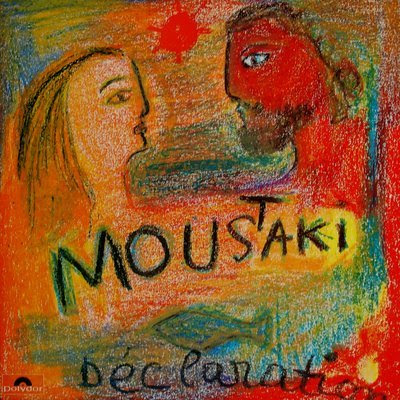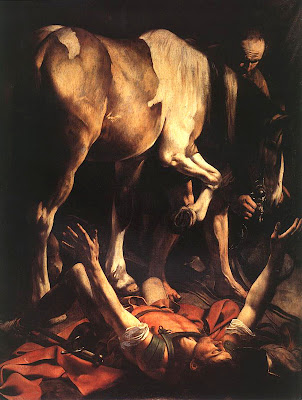 October 2008: Spotlight On Merlene!
October 2008: Spotlight On Merlene!Welcome to Marlinspike Hall, ancestral home of the Haddock Clan, the creation of Belgian cartoonist Hergé. Some Manor-keeping notes: Navigation is on the right, with an explanation of the blog's fictional basis. HINT: Please read the column labelled "ABOUT THIS BLOG." Enjoy the most recent posts or browse posts by posting date in the Archives. Search the blog for scintillating, obscure topics. Enjoy your stay! There are some fuzzy slippers over there somewhere, too.
Saturday, October 25, 2008
Take My Support Group, Please!
 October 2008: Spotlight On Merlene!
October 2008: Spotlight On Merlene!Origins and Babies: Here is a Brand, Spanking New One

We all do, here at the oft stodgy Marlinspike Hall, deep in the Tête de Hergé. Not that we are getting old, sentimental, or soft in the head. Still, La Belle Bianca Castafiore insists that there be no "répétitions" (rehearsals) of her ear-splitting, inimitable voice and her never-ending aria, l'air des bijoux, from Gounod's Faust, during any of the 2 afternoon hours of TLC's reality shows on birth, babes, and frazzled parents.
Fred is even a greater fan of A Baby Story, a documentary of the actual birth, and Bringing Home Baby, which chronicles the first 36 hours of the infant's triumphant arrival at the homestead.
He even manages to derive a little monetary benefit from his passetemps, overseeing betting opportunities -- such as whether, or when, the birthing woman will scream, "Get it out! Just get it out!"
The felines enjoy the shows, as well, lined up in front of the television screen -- mewling, purring, and swatting. Unfortunately, Marmy sometimes has a PTSD-induced flashback to her traumatic birth experience. At the tender age of 8 months, her huge belly almost dragged the ground, and had The Fredster not guilted me out, she would have likely died, along with her five unborn kittens -- just another ill-tempered stray. Ah, but look at her now! Her lush, long hair -- her tiny, well-muscled body, her fascist, unreasoned ways! See her charge the TV screen, hair blowing in the huff of a self-generated breeze! Bless her paranoid little bones!
My favorite show? Jon and Kate Plus Eight, hands down*. It's not just the cute factor, nor even the unavoidable awe that comes from contemplating eight young children who are well-behaved and happy. It's a little bit appreciation of the occasional parental bickering. It's a lot acknowledgement of the grace and love that kisses the pointy head of each and every Gosselin -- whether in any one of the dozen designated Time-Out corners of their home or sporting plastic purple halos.
Anyway...
"Anyway..."? I don't want Braden of 20 Out Of 10 fame to get a swollen head or anything, but the impetus for this Saturday morning confessional were the pictures of his two gorgeous daughters, the youngest being brand-spanking new**, just a day or so old and the spitting image of her sister***.
Welcome, little one!
*Origin of hands down:
Jockeys need to keep a tight rein in order to encourage their horse to run. Anyone who is so far ahead that he can afford to slacken off and still win can drop his hands and loosen the reins - hence winning 'hands down'. This is recorded from the mid 19th century. For example, 'Pips' Lyrics & Lays, 1867:
"There were good horses in those days, as he can well recall, But Barker upon Elepoo, hands down, shot by them all."
It began to be used in a figurative sense, to denote an easy win in other contexts, from the early 20th century.
**Origin of brand spanking new:
A hot burned wooden stake has been called a brand since at least 950 AD. To brand means to 'make an indelible mark of ownership', especially with a hot stake or iron. This verb usage has been known since the Middle Ages and is clearly derived from the earlier name (we might say brand name - but we'll come to that later).
The earliest citation of 'brand new' is in John Foxe's Sermons, 1570:
"New bodies, new minds and all thinges new, brande-newe."
Terms that are old often come to us with a variety of spellings. In this case there are many variants, notable 'bran new', for example:
John Gay's, The What d'ye call it? - a farce, 1714: "Wear these Breeches Tom; they're quite bran-new."
The Times from 1788: "The liquor fpoiled a bran new pair of fattin breaches."
It is sometimes put about that 'brand new' comes from marketing jargon, where terms like 'brand loyalty' etc. are commonplace. That's about a thousand years too late as the origin, but again, it does have the same meaning as the early form. A brand in marketing terms comes from the meaning of the word as 'a particular class of goods, as indicated by a trade mark'.
So, that's 'brand new'; what about the double form 'brand spanking new'? Spanking is little more than an intensifier in this phrase. The word does have a distinct meaning; unrelated to 'slapping with the hand', i.e. 'exceptionally large or fine'. For example, Fanshawe's Love for Love's sake, 1666:
"What a spanking Labradora!"
Like the variety of spellings there are variants of the intensified form - 'brand span new', 'spick and span new', etc. These citations pre-date any known version of 'brand spanking new':
Henry Angelo's Reminiscences, 1830: "His feet were thrust into a bran-span new pair of fashionable pumps."
The Whitby Glossary, 1855: "Brandnew, Brandspandernew, fresh from the maker's hands, or 'spic and span new'."
It appears that whoever coined 'brand spanking new' did so by appropriating the imagery of 'spick and span', the rhyme of 'bran' and 'span' and the meaning of 'spanking'. That is, it is a pleasant-sounding phrase with some appropriate associations. Whatever the intent of the early users of the phrase, it is in Eric Partridge's meaning of the term, a catchphrase, i.e. it has caught on. It appears to have been coined around the turn of the 20th century and is still in common use. The earliest printed citation we can find is in an advertisement for a bicycle, in the Daily Review, Decatur, Illinois, May 1894:
"Here is a Brand, Spanking New one."
***Origin of spitting image:
One of the very first questions that was asked at the Phrasefinder bulletin board was about 'spitting image'. There have been numerous such queries there since and some ask if the term was originally 'splitting image', i.e. deriving from the two matching parts of a split plank of wood. That's a plausible idea. The mirror image matching of the grain of split wood has long been used in furniture and musical instruments for decorative effect. The technique is known as book-matching and the resulting pattern is called fiddleback - for obvious reasons. The theory has its adherents and dates back to at least 1939, when Dorothy Hartley included it in her book Made in England:
"Evenness and symmetry are got by pairing the two split halves of the same tree, or branch. (Hence the country saying: he's the ‘splitting image’ - an exact likeness.)"
As so often though, plausibility isn't the end of the story. The numerous forms of the term 'spitting image' - spit and image, spitten image, the dead spit of etc., appear not to derive from 'split' but from 'spit'.
Some commentators have suggested that 'spit' may be a corruption of 'spirit', but that appears to be fanciful and isn't backed up by any early examples of 'spirit and image'. The allusion is more likely to be to someone who is so similar to another as to appear to have been spat out of his mouth. That idea, if not the exact phrase, was in circulation by the end of the 17th century, when George Farquhar used it in his comic play Love and a bottle, 1689:
"Poor child! he's as like his own dadda as if he were spit out of his mouth."
No version of the phrase is especially old. The earliest reference is in Andrew Knapp and W. Baldwin's The Newgate Calendar, 1824–26:
"A daughter, ... the very spit of the old captain."
This pre-dates any 'splitting image' citation by a good hundred years, which tends to rule out the latter as the source. 'Spit' or 'dead spit', with the meaning of likeness, appears in print several times in the 19th century. Here 'dead' means precise or exact, as in dead ringer.
Other languages have their own versions of this phrase. For example, French - "C'est le portrait craché de son père" ("He's the spitting portrait of his father") and Norwegian - "som snytt ut av nesen paa" ("as blown out of the nose of"). These are difficult to date and may predate the English version or may derive from it.
Toward the end of the 19th century we find 'spit and image'. In 1895, an author called E. Castle published Lt. of Searthey, containing the line:
"She's like the poor lady that's dead and gone, the spit an' image she is."
Finally, we get to the first known use of 'spitting image' - in A. H. Rice's Mrs. Wiggs, 1901:
"He's jes' like his pa - the very spittin' image of him!"
Friday, October 24, 2008
Sarah Palin: In the Evita Tradition
It won’t be easy, you’ll think it’s greed
When I try to explain ’bout these heels
That I still need new suits after all that I’ve bought
You won’t believe me, all you will see is a governor you knew
Although she’s dressed up to the nines
With a much nicer handbag than you!
I had to let it happen, I had to change
Couldn’t stay in Alaska in parkas and Uggs
Looking out of the window, trying to spot Russian soil
So I chose Neimans, running around trying everything new
Though nothing quite fit me at all
Spent a fortune on tailoring, too!
(chorus)
Don’t cry for me, Neiman-Marcus
The truth is I never left you
All through the suit racks, the designer shoe stacks
I kept the price tags, you’ll get the clothes back!
(see the complete lyrics here.)
Thursday, October 23, 2008
Georges Moustaki: Déclaration
 Je déclare l'état de bonheur permanent
Je déclare l'état de bonheur permanentWednesday, October 22, 2008
Boning Up on Tadalafil
 La Belle Bianca Castafiore is driving me crazy. Indeed, I have Big-Bad Crazy-Ass Priapism -- and believe me, it lasts for more than four hours and occurs without the slightest hint of sexual stimulation. Oh, and what is it that stands so stoically erect? Only my last nerve... My precious, precious last nerve.
La Belle Bianca Castafiore is driving me crazy. Indeed, I have Big-Bad Crazy-Ass Priapism -- and believe me, it lasts for more than four hours and occurs without the slightest hint of sexual stimulation. Oh, and what is it that stands so stoically erect? Only my last nerve... My precious, precious last nerve.Translation in Webdings: La Belle Bianca Castafiore is driving me crazy. Indeed, I have Big-Bad Crazy-Ass Priapism -- believe me, it lasts for more than four hours and occurs without the slightest hint of sexual stimulation. Oh, and what is it that stands so stoically erect? Only my last nerve... My precious, precious last nerve.
Perhaps some of you brainy types out there [*wave*] can tell me the critical standing of BMC journals; Specifically, whether their status is impacted by their liberal distribution policy:
Like all articles in BMC journals, this peer-reviewed article was published immediately upon acceptance. It can be downloaded, printed and distributed freely for any purposes (see copyright notice below). Articles in BMC journals are listed in PubMed and archived at PubMed Central.
As a non-scientist who nonetheless gamely works at comprehension, and as a petrified former scholar, I very much appreciate their policy.
Okay... first, excuse me while I play with fonts. Second, yes, Tadalafil is more widely known as Cialis. It's not too much of a stretch to pair the drug's effect on, umm, let's say, micro-vasculature -- with the want of dilation in cold CRPS. Right?
Here is the abstract of the article -- "Effect of tadalafil on blood flow, pain, and function in chronic cold Complex Regional Pain Syndrome: a randomized controlled trial" -- published in Musculoskeletal Disorders, 20 October 2008:
Background
This double-blind, randomized, controlled trial investigated the effect of the phosphodiesterase-5 inhibitor tadalafil on the microcirculation in patients with cold Complex Regional Pain Syndrome (CRPS) in one lower extremity.
Methods
Twenty-four patients received 20 mg tadalafil or placebo daily for 12 weeks. The patients also participated in a physical therapy program. The primary outcome measure was temperature difference between the CRPS side and the contralateral side, determined by measuring the skin temperature with videothermography. Secondary outcomes were: pain measured on a Visual Analogue Scale, muscle force measured with a MicroFet 2 dynamometer, and level of activity measured with an Activity Monitor (AM) and walking tests.
Results
At the end of the study period, the temperature asymmetry was not significantly reduced in the tadalafil group compared with the placebo group, but there was a significant and clinically relevant reduction of pain in the tadalafil group. Muscle force improved in both treatment groups and the AM revealed small, non-significant improvements in time spent standing, walking, and the number of short walking periods.
Conclusion
Tadalafil may be a promising new treatment for patients that have chronic cold CRPS due to endothelial dysfunction, and deserves further investigation. Trial Registration: The registration number in the Dutch Trial Register is ISRCTN60226869.
Authors: George Groeneweg , Frank JPM Huygen , Sjoerd P Niehof , Feikje Wesseldijk , Johannes BJ Bussmann , Fabienne C Schasfoort , Dirk L Stronks and Freek J Zijlstra
Sunday, October 19, 2008
Conversion
 A perfect sentiment for a Sunday morning is rising in me, and it comes from knowing a *bunch* of people who felt compelled to send me the story copied below. Let it be noted, however, that I first read it several days ago on The Happy Hospitalist, site of one of the best medical bloggers around.
A perfect sentiment for a Sunday morning is rising in me, and it comes from knowing a *bunch* of people who felt compelled to send me the story copied below. Let it be noted, however, that I first read it several days ago on The Happy Hospitalist, site of one of the best medical bloggers around.Where do I place on the continuum? Well, I *was* a fierce Dog Person, finding in the company of my pet canines a great joie de vivre and tremendous intelligence -- but, best of all, an enveloping love. Unfortunately, Fred is not keen on dogs and has a lifelong fascination with cats. And so it was that I found myself on the road to Damascus.
Fred + cats = something that defies description. The closest I can come is to say that a cat exposed to The Fredster begins to approximate dog behavior. He had Dobby sitting and fetching on command within a day. A regular Pied Piper, is Fred.
It might be a sad commentary to admit that we send each other emails, but please remember that we reside within the Tête de Hergé -- within the vast opulence of the living museum that is Marlinspike Hall -- and that we've resisted the modernizing impulse to install an intercom system. So there are times when I don't feel like rolling myself back to his suite of rooms, just as he feels too lazy to hoof it to mine.
After I read the "nap story" chez The Happy Hospitalist, I emailed it to Fred. I then checked my own incoming missives, only to find that he had copied it to me a few hours earlier. In recent months, he has been making noises about getting a dog, giving as a reason that he wants "as much love as possible" in his life.
Anyway, I received more copies in my inbox this morning, and so I pass it on to you, for so it seems decreed that we should see ourselves in this sweet, tired pooch.
An older, tired-looking dog wandered into my yard; I could tell
from his collar and well-fed belly that he had a home and was
well taken care of.
He calmly came over to me, I gave him a few pats on his head;
he then followed me into my house, slowly walked down the
hall, curled up in the corner and fell asleep.
An hour later, he went to the door, and I let him out.
The next day he was back, greeted me in my yard, walked inside and resumed
his spot in the hall and again slept for about an hour. This continued off
and on for several weeks.
Curious I pinned a note to his collar: 'I would like to find out who the
owner of this wonderful sweet dog is and ask if you are aware that almost
every afternoon your dog comes to my house for a nap.'
The next day he arrived for his nap, with a different note pinned to his
collar: 'He lives in a home with 6 children, 2 under the age of 3 - he's
trying to catch up on his sleep. Can I come with him tomorrow?'